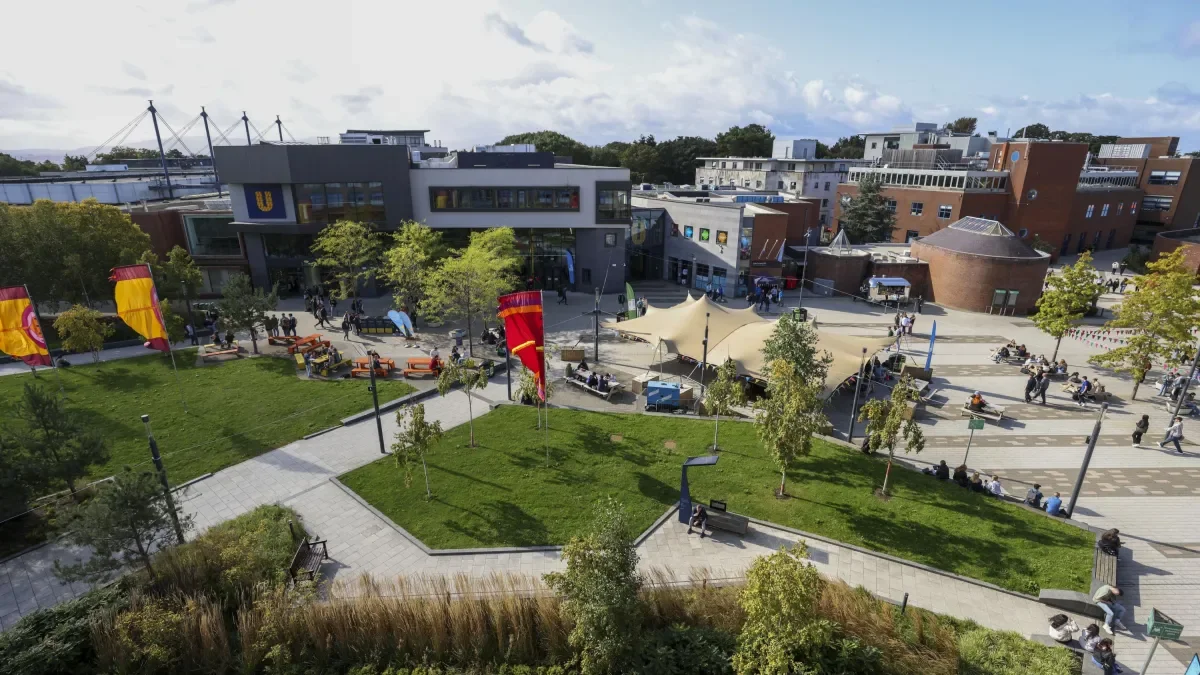

Four projects involving DCU researchers secure Research Ireland Discovery funding
The “Empowering Young People through AI, Data and Emerging Technologies” project sees Prof Tomas Ward and Dr Shirley Coyle from the School of Electronic Engineering, partnering with The National Youth Council of Ireland (NYCI) and Insight and the Ombudsman for Children’s Office (OCO), on a new initiative to equip young people—especially those from marginalised backgrounds— and youth workers with essential knowledge and skills in Artificial Intelligence (AI), data, and emerging technologies. The project has been allocated just under €300,000.
Speaking at the launch, Tomás Ward, Professor of Data Analytics at DCU and Site Director of Insight SFI Research Centre for Data Analytics, highlighted the importance of this initiative:
"Artificial Intelligence and emerging technologies are reshaping the world around us before our very eyes. It is essential that young people are equipped with the knowledge and skills to engage with these developments and that their voices are heard. This initiative is about ensuring that all young people, particularly those from marginalised backgrounds, have the opportunity to understand, question, and shape the future of AI. At DCU and Insight, we are committed to fostering inclusive AI education and empowering youth workers with the tools they need to make AI accessible and part of their practice.”
Project highlights include a national consultation with young people to explore their perspectives on AI and data, culminating in a report and awareness campaign, and collaborations with organisations including Crosscare, Finglas, and Familibase Ballyfermot to explore AI and data in youth work with ‘hard-to-reach’ young people.
‘Divergently Together’ is a socially engaged creative project that uses brain computer interface technology to support neurodivergent communities to take part in climate action. It is a collaboration with artist AlanJames Burns, Dublin City University and the Insight SFI Research Centre for Data Analytics.
Climate change is a key issue of our time and it disproportionately affects disabled communities. This can be through eco-ableism, lack of accessible information, physical vulnerabilities in extreme weather events, increased sensitivity in heat waves due to critical medications, and lack of access funding in climate action projects, to name a few.
However, people with lived experience of disability also have expert skill sets which are needed to address the climate emergency, such as resilience, resourcefulness, and specialist knowledge of navigating a world of barriers and obstacles. People with neurodiversity think creatively in non-linear, exploratory patterns that could greatly support climate mitigation solutions, yet they are largely excluded from climate action.
Led by artist AlanJames Burns and Insight Centre at DCU, ‘Divergently Together’ brings together two communities of neurodivergent individuals: one cross border community based across the Cavan, Fermanagh, and Omagh area, and another in Dublin City. Through a series of creative workshops and discussions, these communities co-design neurodivergent friendly responses to the climate emergency, while also building climate literacy and opening up dialogue with climate stakeholders. By connecting with local authorities and policymakers, the project works to ensure climate strategies become more inclusive, accessible, and reflective of the diverse realities of the disability community.
AlanJames Burns, Lead Artist on the project said:
“As a neurodivergent artist, I see first-hand the power of thinking differently. It’s through imagination, creativity and coming together as a community that we can shape a more inclusive and sustainable future”
The STEM for ALL: Supporting teacher professional learning for inclusive STEM project aims to equip teachers with the skills and confidence to create truly inclusive learning environments for all learners, particularly neurodivergent learners and those with additional educational needs. The project has received just under €60,000.
The project is led by Dr Aoife Brennan supported by Dr Sylwia Kazmierczak-Murray, Joe Dr Travers, and Dr Nicola Broderick.
Dr Aoife Brennan said:
“Recognising that teachers often lack confidence in supporting learners with additional educational needs in STEM, our project offers targeted school-based professional development. We're focusing on building expertise in inclusive and neuro-affirmative practices to create equitable and engaging STEM experiences for every learner.”
A collaborative university-school partnership model, involving eight schools, will establish a sustainable model for teacher professional development. It will support eight teacher leaders to spearhead school-based professional learning communities in their schools. These communities, supported by the research team at DCU, will focus on practical, classroom-based inquiry to enact inclusive and neuro-affirmative STEM teaching in the classroom. Gathering findings from the communities, the project will culminate in the co-creation of an framework of inclusive STEM teaching practices.
The Climate Talk: empowering the next generation to find their voice project seeks to engage transition year students to talk about climate change through workshops. The project focuses on climate changes issues that are important to these students. The sessions will also extend to skills based exercises such as identifying misinformation and disinformation, and how to use multimedia tools.
The project, led by Dr Stephen Gammell, School of Physical Sciences and Dr Trish Morgan, School of Communications, has received just €69,000 in funding.
